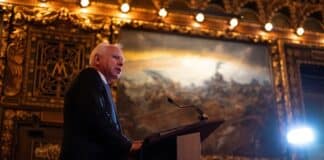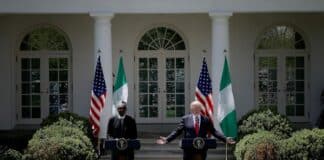President Donald Trump’s upcoming Gulf tour has stirred tensions in Jerusalem, raising concerns that U.S. strategic priorities in the region may be shifting—despite warm rhetoric between Trump and Israeli Prime Minister Benjamin Netanyahu. Trump’s stops in Saudi Arabia, the UAE, and Qatar—while notably skipping Israel—signal a recalibrated approach centered on commerce, diplomacy, and regional influence.
At a White House meeting shortly after Trump’s return to office, Netanyahu praised him as “the greatest friend Israel has ever had in the White House.” Trump echoed the sentiment weeks later, saying, “We are on the same side of every issue.” Yet Tuesday’s announcement of a U.S.-Houthis agreement—where the U.S. would halt airstrikes in Yemen in exchange for security in the Red Sea—landed just two days after a Houthis missile struck near Israel’s Ben-Gurion Airport.
The deal, coupled with Trump’s continued outreach to Iran and exclusion of Israel from his Gulf itinerary, has stoked some concern in Jerusalem. Former Israeli National Security Advisor Giora Eiland warned, “The US does not count us, or even worse, is working behind our back.”
Trump’s focus during the Gulf tour includes brokering investment deals and laying the groundwork for possible future normalization between Israel and Saudi Arabia. But Gulf leaders have tied normalization to an end to the war in Gaza and renewed efforts toward a two-state solution. Meanwhile, Trump faces pressure from Arab allies to secure a temporary ceasefire or hostage deal—moves that could bolster his image as both a staunch Israeli ally and a regional peacemaker.
Strategic dialogue on Iran is also central to the tour. Trump seeks support for his multi-pronged policy of maintaining pressure on Tehran while exploring a possible new nuclear deal. Gulf monarchies remain wary, fearing retaliation if diplomacy collapses.
Saudi Arabia has pledged up to $600 billion in U.S. investments, and the UAE has floated $1.4 trillion in joint ventures. These figures help Trump frame the trip as an “America First” success, especially as his domestic approval ratings falter.
Still, the omission of Israel from the itinerary sends a clear signal. As one senior Israeli official noted, “This trip is not about Israel: If it were, he’d be coming here.”





